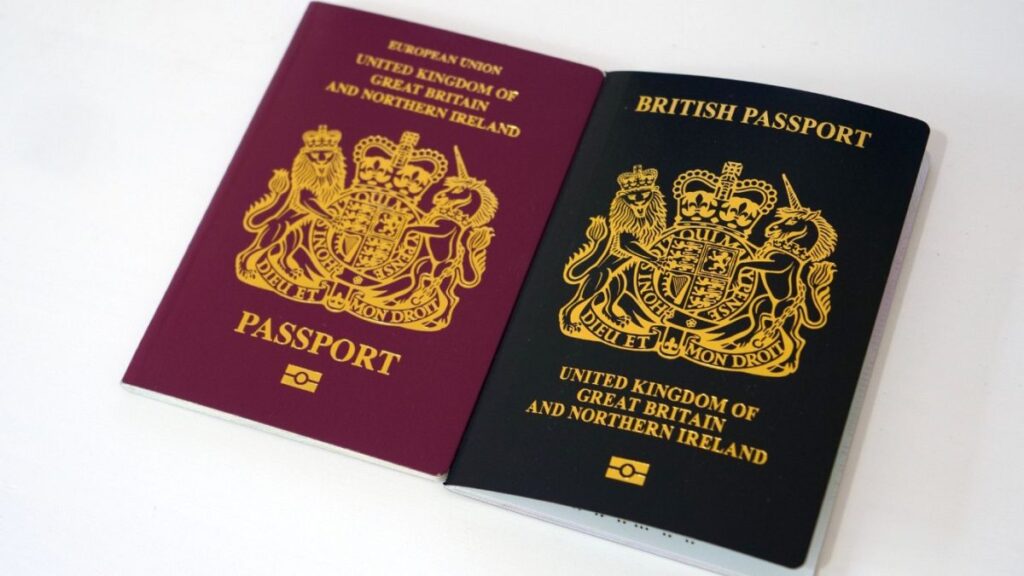UK passport fees are set to increase again next month.
UK passport application fees are set to rise again in April.
The cost of renewing a UK passport went up in February 2023 for the first time in five years. Just over one year later, the fee will see a second hike of £6 (€7).
In better news, waiting times are no longer at an all-time high. British holidaymakers are advised to allow three weeks for passport renewal, compared with 10 weeks a year ago.
The government said the new fees would help reduce the reliance on taxpayer money to fund and improve the service. As well as contributing to the cost of processing applications, the fees are supposed to support consular services overseas, like replacing lost or stolen passports, and the processing of British citizens at UK borders.
How much have UK passport fees increased by?
As of 11 April, the fee for a standard online passport application made from within the UK will rise from £82.50 (€93) to £88.50 (€103) for adults and from £53.50 (€60) to £57.50 (€67) for children.
This is up from £75.50 (€85) and £49 (€55) respectively prior to February 2023.
Postal applications have increased from £93 (€105) to £100 (€117) for adults and £64 (€72) to £69 (€80) for children.
The increased fees apply to both new passport applications and renewals.
During the application process, you can choose a regular-sized passport of 34 pages or a jumbo passport of 54 pages – useful if you travel frequently particularly as trips to Europe now mean getting a passport stamp.
The government has not confirmed how much the cost will rise for the 54-page version.
How do the UK’s passport fees compare to other European countries?
In France, the adult fee for a passport application from within the country is €86. However, if you are replacing your passport because it no longer has blank pages or because your address or name has changed, it can be replaced free of charge.
Italy’s adult passport fee is €73.50. An additional yearly stamp duty of €40.29 was abolished in 2014. It now only needs to be paid once for each application bringing the total up to €116.
For Spanish passports, the renewal fee is significantly lower at €30.
For all of these countries, including the UK, adult passports are valid for 10 years (or five years for those under age 30 in Spain).
However, since Brexit, UK citizens need to be cautious of their passport expiration date.
Previously, Brits could travel in the EU up to and including the expiry date on their passports. Now, EU regulations classify UK citizens as ‘third country nationals,’ meaning your passport must be valid for at least three months after the date you plan to leave the country you are visiting.
How far in advance should you apply for your UK passport?
During the COVID-19 pandemic, the waiting time for passport renewals shot up to 10 weeks. This was because restrictions significantly impacted processing times.
Long wait times remained into 2023, however they have now been reduced to around three weeks.
If you need to renew your passport before a summer holiday in July, you should therefore look to submit your application by the start of June at the latest. Extra time might be necessary if the government requires more information, needs to interview you, or you are applying from another country.
In the UK, this can be done online – the cheaper option – or via the post using a paper form.
What if your holiday is in less than three weeks?
If you need a faster service, you can pay extra for an urgent passport renewal application from within the UK.
The Online Premium service takes one day and can be applied for via the UK government website, but requires you to attend an in-person appointment at your nearest passport office where you will receive your new passport.
The earliest you can get an appointment is two days from when you apply and this service currently costs £193.50 (€226).
Alternatively, you can get your renewed passport delivered to your home one week after your appointment using the Fast Track service. This currently costs £155 (€181) for adults and £126 (€147) for children.
It is not yet clear whether priority service fees will also be raised in April.
Read the full article here











